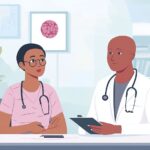Effective communication with healthcare providers and other healthcare professionals is essential for patient safety, satisfaction, and overall health outcomes. By fostering clear exchanges of information, patients can better understand treatment plans, adhere to medications, and make informed healthcare decisions.
However, barriers such as complex medical terminology, cultural differences, and misunderstandings can hinder these interactions. Identifying these obstacles in healthcare settings and utilizing communication strategies like active listening, technology interventions, and thorough preparation can significantly enhance communication.
This guide offers tips for effective communication, such as improving communication efficiency through:
- Preparing questions in advance
- Bringing medical records
- Understanding common medical terms and healthcare communication methods
By improving your communication skills, you foster a more collaborative and trusting relationship with your healthcare team.
Key Takeaways:
Importance of Effective Communication with Healthcare Providers
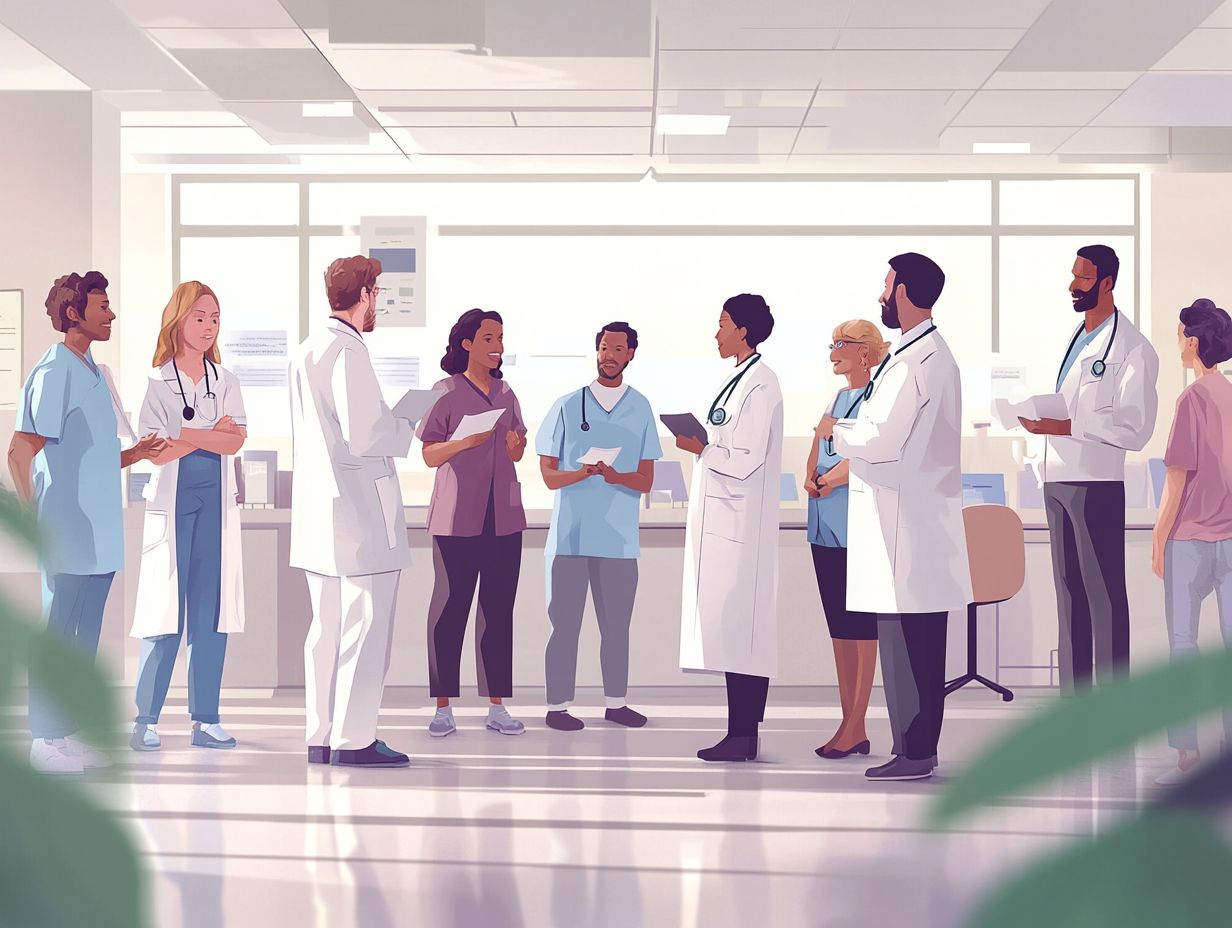
Effective communication with healthcare providers is crucial for ensuring patient safety and satisfaction by enabling clear information exchange.
This communication improves decision making and collaboration among healthcare professionals, leading to higher-quality care and better patient outcomes.
Engaging in open dialogues with medical professionals enhances patient trust, improves patient engagement, and supports patient-centered care.
Why It Matters for Your Health
Effective communication with healthcare providers is crucial for health because it improves understanding of medical information and enhances patient outcomes.
When patients communicate clearly, they better understand treatment plans and adhere to prescribed medications, leading to improved health, patient safety, and satisfaction.
Clear dialogue helps clarify medical terms and processes, bridging gaps between providers and patients to improve health literacy, communication culture, and overall well-being.
Barriers to Effective Communication
Barriers to effective communication in healthcare include poor communication practices, misunderstandings, and complex medical terminology.
Poor communication practices involve unclear instructions, lack of active listening, and insufficient feedback.
Misunderstandings can occur due to cultural differences, language barriers, assumptions about patient knowledge, and communication challenges in healthcare settings.
Complex medical terminology can confuse patients and impede the exchange of critical clinical data, affecting the information flow within healthcare organizations.
Identifying and Overcoming Obstacles
Identifying and overcoming obstacles to effective communication involves recognizing healthcare barriers and implementing technology solutions and communication systems.
Open dialogue and regular team meetings help healthcare teams identify and address communication barriers.
Active listening with patients ensures their needs are understood and met, fostering effective collaboration.
Technologies like telehealth and secure messaging enhance communication among healthcare providers, improve communication methods, and strengthen interactions with patients.
These strategies improve teamwork, facilitate shared decision making, and foster a culture of trust and transparency in healthcare settings.
Tips for Communicating with Healthcare Providers
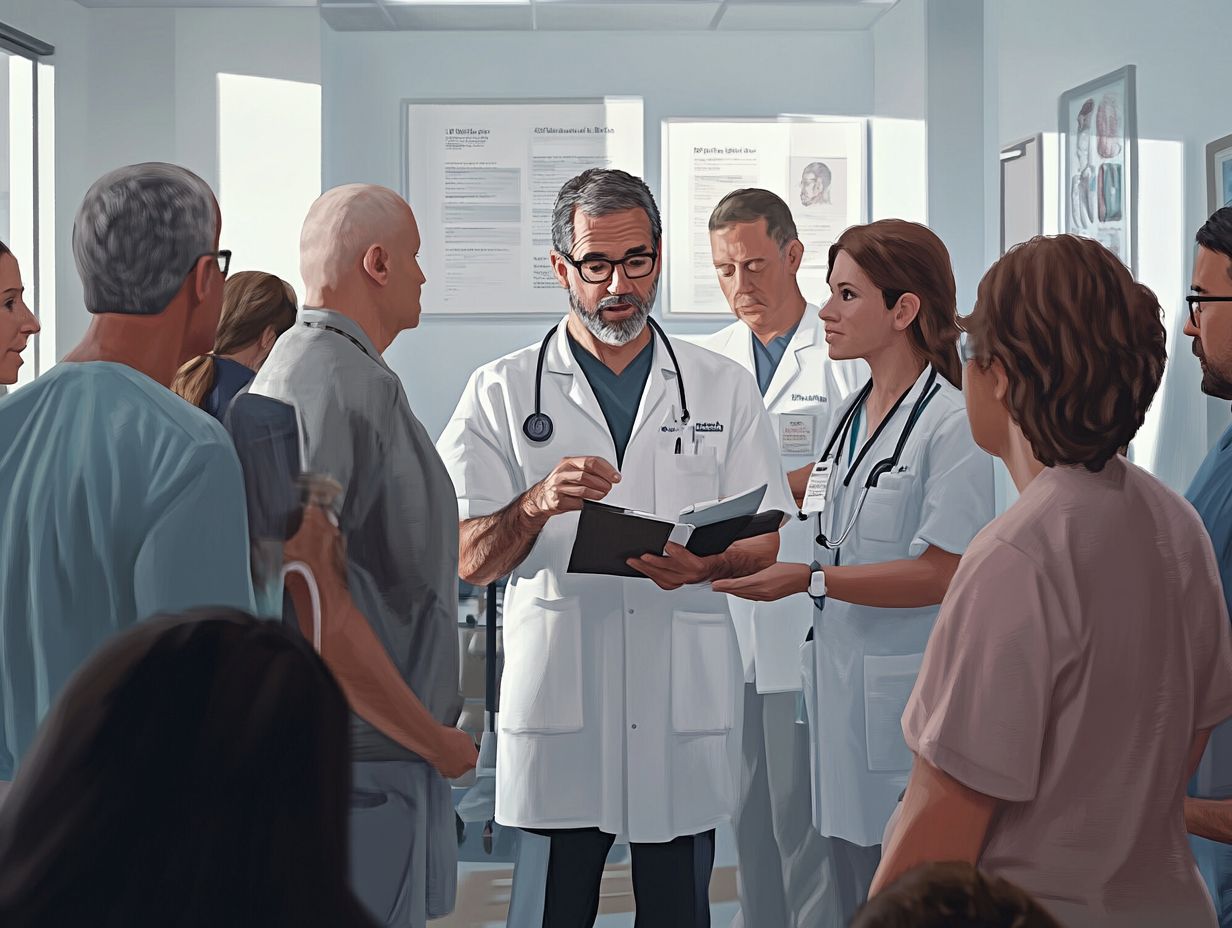
Communicating with healthcare providers effectively involves preparing questions in advance, being clear and concise about symptoms, and actively listening during appointments, utilizing communication strategies.
Patients should bring a list of current medications, medical history, and personal information to ensure accurate information exchange and comply with HIPAA regulations.
Asking for clarification on medical terms and treatment options can improve understanding and trust.
Effective communication helps in making informed healthcare decisions and supports patient advocacy.
Strategies for Clear and Productive Communication
Strategies for clear and productive communication between patients and healthcare professionals include:
- Using digital tools for appointment reminders
- Setting expectations for appointments
- Actively engaging with questions during consultations
- Preparing with patient medical history and insurance details
These strategies reduce no-shows, decrease patient anxiety, enhance patient-provider interaction, and improve health outcomes and job satisfaction among healthcare professionals.
Preparing for Healthcare Appointments
Preparing for healthcare appointments involves gathering personal and medical information, noting symptoms, listing medications, and understanding health insurance coverage.
- Bringing medical history
- Current medication list
- Any recent test results
Writing down questions and concerns ensures better communication with healthcare providers, facilitating patient-centered communication.
What to Bring and What to Ask
For an appointment, bring medical records, list of medications, and recent lab results. Ask questions about treatment purposes, potential side effects, next steps in care, and healthcare delivery methods. Preparation with records and questions enhances patient-doctor communication.
Understanding Medical Terminology
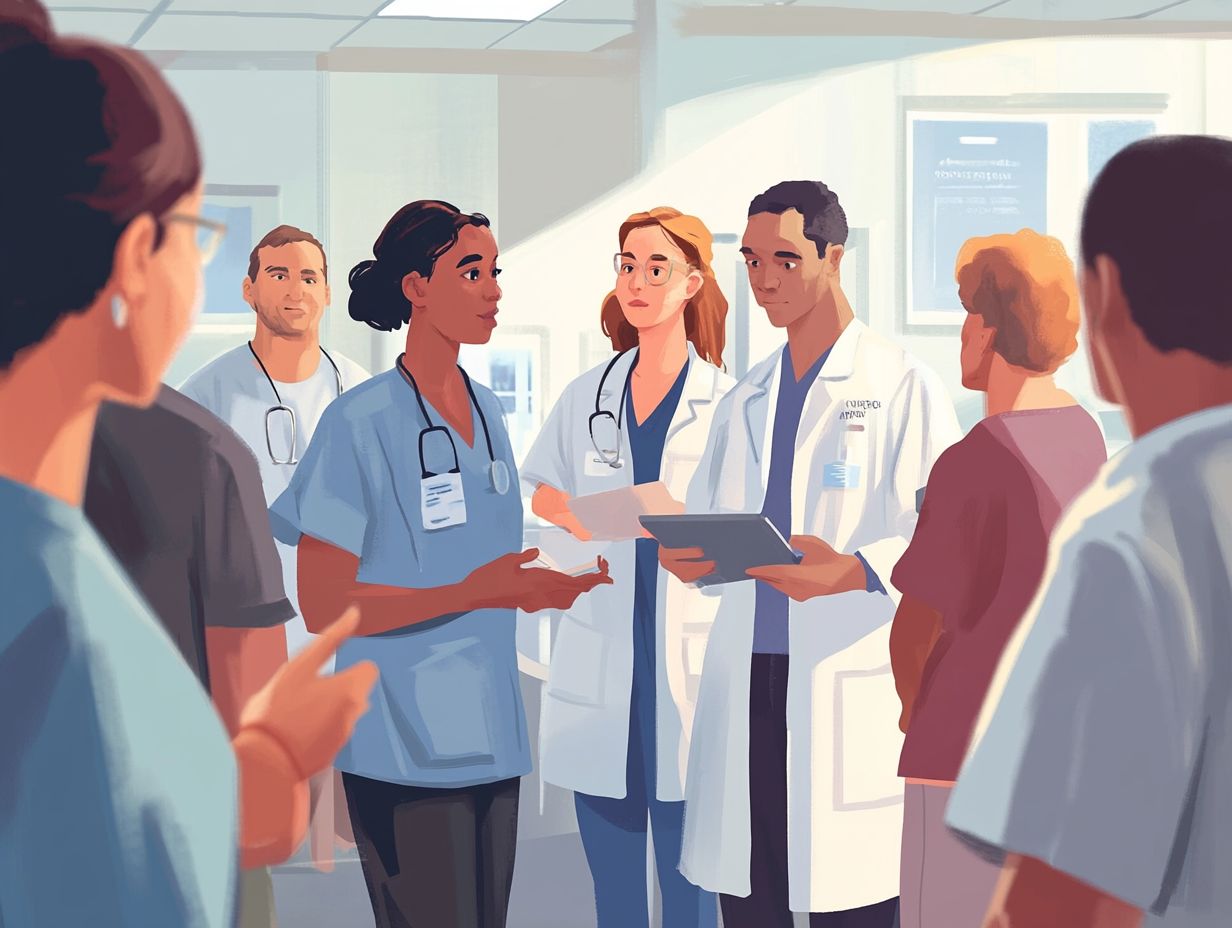
Understanding medical terminology involves comprehending the language and terms used by healthcare professionals to describe the human body, diseases, treatments, procedures, and clinical data management.
This knowledge helps patients communicate effectively with doctors and understand their health conditions and treatment plans.
Common Terms and Their Meanings
Common medical terms and their meanings help patients understand clinical data and healthcare processes.
‘Diagnosis’ refers to identifying a disease or condition and is a critical component of effective collaboration between patients and healthcare professionals.
‘Treatment plan’ outlines strategies to address health issues and is crucial for effective collaboration and shared decision making.
Understanding medical terms enables better communication with healthcare providers.
Frequently Asked Questions
1. What are some ways to effectively communicate with my healthcare providers?
Some effective ways to communicate with your healthcare providers include being honest and open about your symptoms and concerns, actively listening to their advice, and asking questions to fully understand your condition, treatment plan, and the communication methods they use.
2. How can I improve my communication with my healthcare providers?
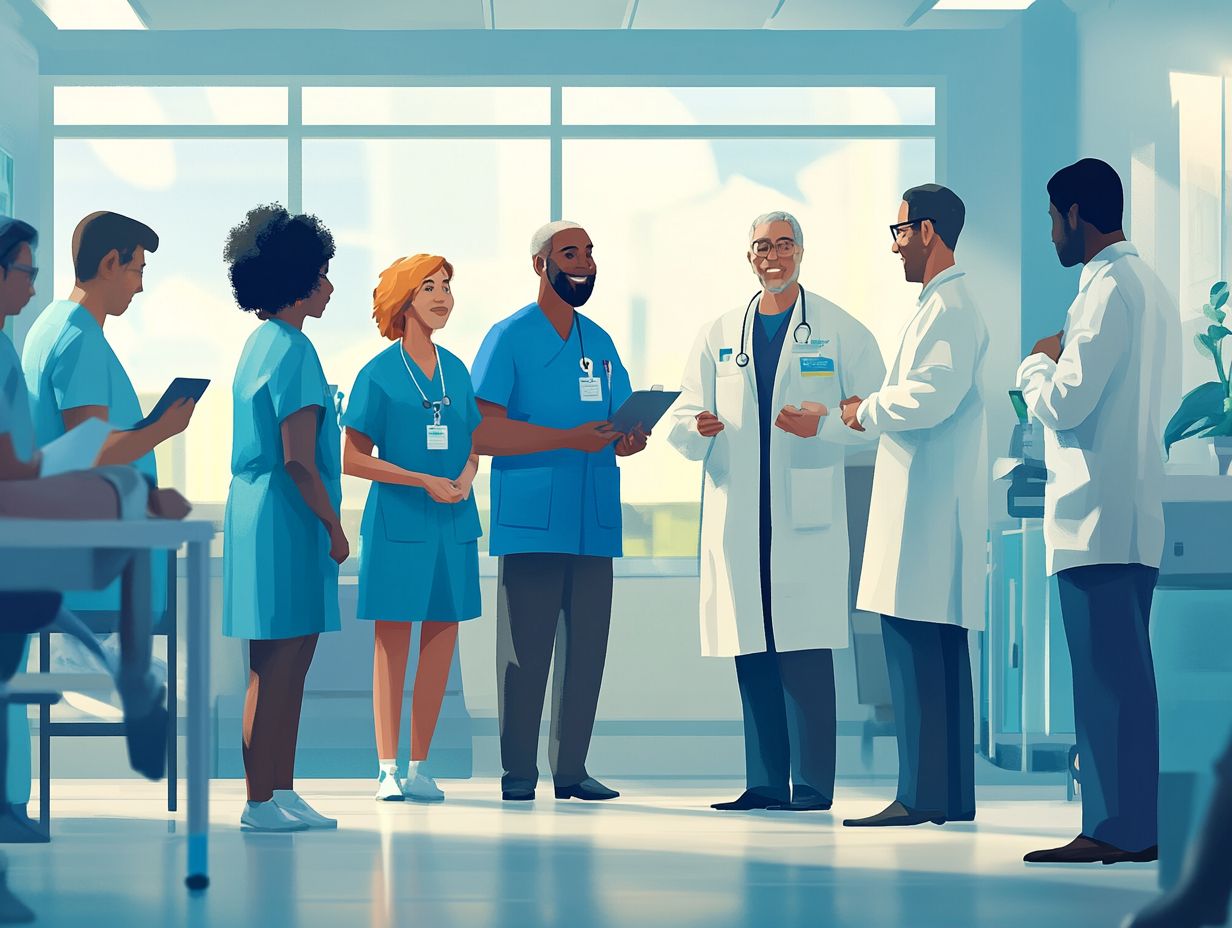
You can improve your communication with healthcare providers by being prepared for your appointments, bringing a list of questions or concerns, utilizing digital tools for reminders, and taking notes during the appointment to remember important information.
3. Why is effective communication important in healthcare?
Effective communication is important in healthcare because it allows for a better understanding of your condition and treatment plan, which leads to better health outcomes. It also helps build a trusting relationship between you and your healthcare providers.
4. What should I do if I am having trouble understanding my healthcare provider’s instructions?
If you are having trouble understanding your healthcare provider’s instructions, don’t be afraid to ask them to repeat or clarify. You can also bring a family member or friend to appointments to help take notes and ask questions on your behalf, improving the communication culture.
5. How can I communicate with my healthcare provider if I am unable to meet in person?
If you are unable to meet with your healthcare provider in person, you can communicate through telemedicine options such as phone calls or video appointments. You can also communicate through secure online messaging platforms, ensuring HIPAA compliance.
6. Is it important to share my full medical history with my healthcare provider?
Yes, it is important to share your full medical history with your healthcare provider. This includes any previous conditions, medications, allergies, and relevant personal information. It helps them make informed decisions about your care and avoid potential complications, enhancing patient safety.


